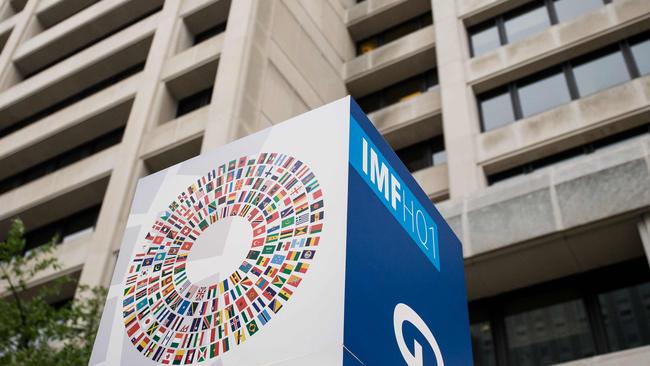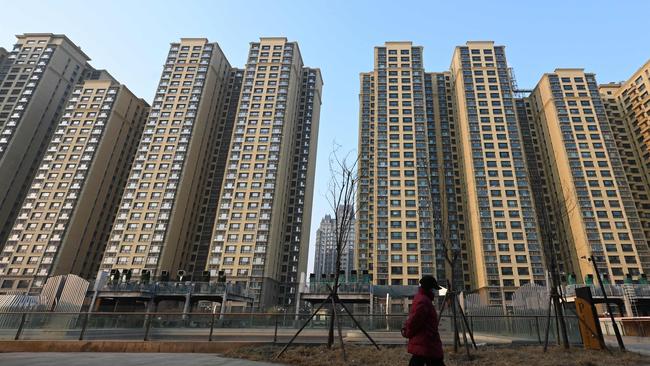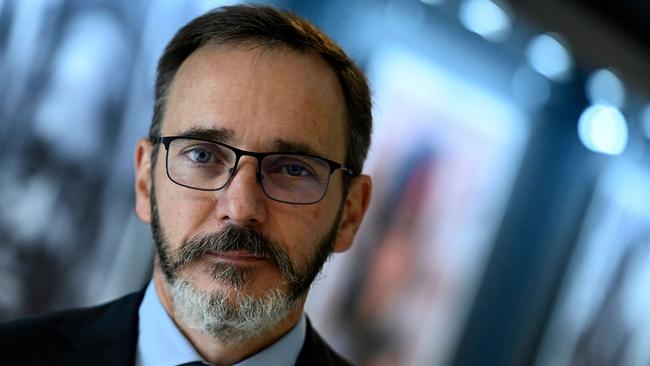IMF upgrades Australian economic forecasts but warns on geopolitical shocks, Chinese property sector
A global economic organisation has forecast inflation in Australia will fall further, but it warns risks in the world economy remain.
Australia’s economy is expected grow faster while global inflation is set to fall quicker, the International Monetary Fund has forecast, easing recessionary fears.
But global economic and geopolitical shocks, stubborn inflationary pressures, and a disruptive turn to tax hikes and spending cuts could all risk derailing growth, the fund has also warned.
In its World Economic Outlook for 2024, unveiled by the IMF on Tuesday, fresh forecasts showed the Australian economy would expand by 1.4 per cent this year, a 0.2 percentage points increase on its previous annual forecast.
Australia’s GDP growth is subsequently anticipated to expand by 2.1 per cent in 2025.

At the same time, inflation is projected to ease across advanced economies, including Australia, falling to an average of 2.6 per cent in 2024.
That is a more optimistic outlook that the Reserve Bank’s, which doesn’t expect inflation in Australia to return to its 2 to 3 per cent target band until the end of 2025.
Global growth is also projected to be better than previously forecast, up 3.1 per cent this year, before edging up to 3.2 per cent the following year in 2025.
The Washington-based fund added that the likelihood of a hard landing – that is inflation returning to target while triggering a recession – had receded.
“The forecast for 2024-25 is, however, below the historical average of 3.8 per cent,” the report, unveiled during the organisation’s annual meeting, cautioned.
However, the IMF warned several threats clouded the global economy in coming years.


An escalation of conflict in the Middle East and the ongoing war in Ukraine risked generating fresh adverse supply shocks to the global recovery, with spikes in food, energy and transportation costs, the report cautioned.
Without a comprehensive stimulus package for China’s ailing property sector, which was rocked by the liquidation of the property giant Evergrande on Monday, could also undermine global growth.
Moves by governments to excessively slash spending and hike taxes, and the possibility of inflation remaining higher for longer could also result in slower GDP growth in the near term.
The fund’s chief economist Pierre-Olivier Gourinchas said with “clouds” confronting the world’s economies were “beginning to part”.
“The global economy begins the final descent toward a soft landing, with inflation declining steadily and growth holding up,” Mr Gourinchas said, before adding that “the pace of expansion remains slow, and turbulence may lie ahead.”

Despite the IMF’s analysis showing the recent easing in inflation occurred due to falling commodity and energy prices, rather than due to faltering economic activity as a result of higher interest rates, Mr Gourinchas said monetary policy had still played an integral role.
“The rapid pace of tightening helped convince people and companies that high inflation would not be allowed to take hold,” he said.
“This prevented inflation expectations from persistently rising, helped dampen wage growth, and reduced the risk of a wage-price spiral.”
Earlier this month, the IMF recommended the RBA hike interest rates even higher “to ensure inflation comes back to target earlier than 2026,” defying consensus forecasts that the country’s central bank had finished its aggressive run of monetary tightening.
Economists almost unanimously expect the RBA will keep rates on hold at 4.35 per cent at its February meeting next week, while bond markets are fully priced for two rate cuts starting from August.



To join the conversation, please log in. Don't have an account? Register
Join the conversation, you are commenting as Logout